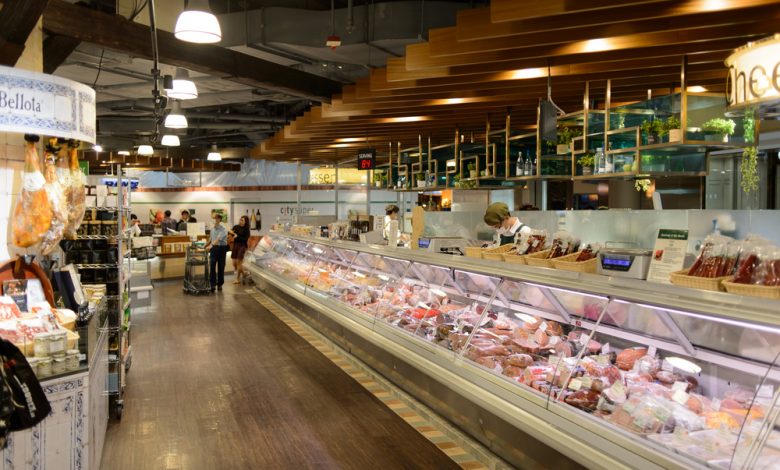
Contrary to President Biden’s comments that the meatpacking industry is causing inflation in the price of meat, exactly the opposite is true. Biden claims that the four largest firms in that industry are pushing prices up because of the lack of competition. There is however a difference between a lack of competition in a market and mature industry.
It is true that four companies, Tyson JBS, Marfrig, and Seaboard, control about 85% of the market. With this amount of market control, these four firms have virtually minimized competition. As a result, while food prices rose 6.4% in 2021, the price of meat, poultry, and fish have increased 12.8%, according to the US Department of Agriculture.
“Capitalism without competition isn’t Capitalism. It’s exploitation.” Biden recently said.
Is Biden, right? Are four large companies enough for competition?
This is the same argument used in any oligopolistic market. Economists usually say that a market is an oligopoly, as opposed to purely competitive, when the top four companies control at least 70% of the market. By that definition, the meatpacking industry is an oligopoly.
Biden would say that the few large producers are therefore able to exert undue influence in the market, potentially giving them the market power to raise prices whenever they see an opportunity. On the other hand, Biden might say, if the market was purely competitive, market forces would lead to downward adjustments to the price.
In oligopolistic markets, new firms have difficulty entering usually because the existing firms have some market advantage. This advantage can come from brand equity or some other barrier to entry.
Biden says that his administration will take action to make it easier for new firms to enter and for smaller existing firms to expand. While the increased competition could result in lower prices that is not always the case in mature markets.
If any oligopolistic market is examined historically, we usually find that the market had originally been purely competitive. However, over time, the market matured and found it is best served by a few very efficient firms rather than a large number of relatively inefficient ones.
For instance, look at the market for the retail sales of groceries. In the early 1900s, most Americans bought groceries from a corner grocery store. That meant there were thousands of small, relatively inefficient, grocery stores nationwide.
It also meant that prices were relatively high as the merchants needed to earn sufficient profit by placing high markups on the small number of goods that they sold. Then larger retailers discovered if they expanded their product line and they increased their sales volume, they could earn sufficient profits by charging lower per-unit prices but selling much higher quantities.
That meant instead of a municipality having say twenty small grocery stores, it ends up with three large supermarkets. Today, while some small, mostly specialty grocery stores remain, almost every municipality has at least a couple of supermarkets. The result is lower prices for consumers and much more consumer convenience. The retail sale of groceries market matured.
Still, if the few sellers tried to charge above-market equilibrium prices to earn excess profits, new firms would enter the market, increase the supply and bring the price down. That somewhat explains the emergence of discount food retailers, like Aldi, in many markets.
In the meatpacking industry, the market has matured. An examination of the four large producers would show that they are mature businesses, and part of their growth was a result of mergers and acquisitions.
Meat prices, as well as the rising price of other goods, are not a result of too few firms. Rather it is a result of increased costs due to some supply disruptions, labor shortages, and rising energy prices. The higher prices are also a result of excess demand brought about by huge government deficit spending which gave thousands of dollars of free money to every household.
The excess demand is also caused by an overly expansive monetary policy and interest rates near zero. Those actions make credit readily available and at a very low cost, which encourages consumers to spend.
To bring down the inflation rate in the meatpacking industry and the inflation rate in all markets, the solution is simple. The Biden Administration must first change its energy policy that reduces the supply of fossil fuels.
The supply restrictions (canceled Keystone pipeline, ban on drilling on federal lands, and the ban on drilling off the coast of Alaska) coupled with rising demand due to the economic recovery have led to much higher energy prices.
The Biden Administration must also reduce the budget deficit and stop giving free money to Americans. The deficit spending adds excess demand. The government handouts are allowing mostly lowered paid workers to stay out of the job market. That led to the labor shortage which led o wage inflation.
The Federal Reserve must reduce the growth rate in the money supply and immediately raise interest rates, to reduce the excess demand. Until that happens, we will be paying more for meat and more for almost everything else that we purchase.





Leave a Reply
Thank you for your response.
Please verify that you are not a robot.